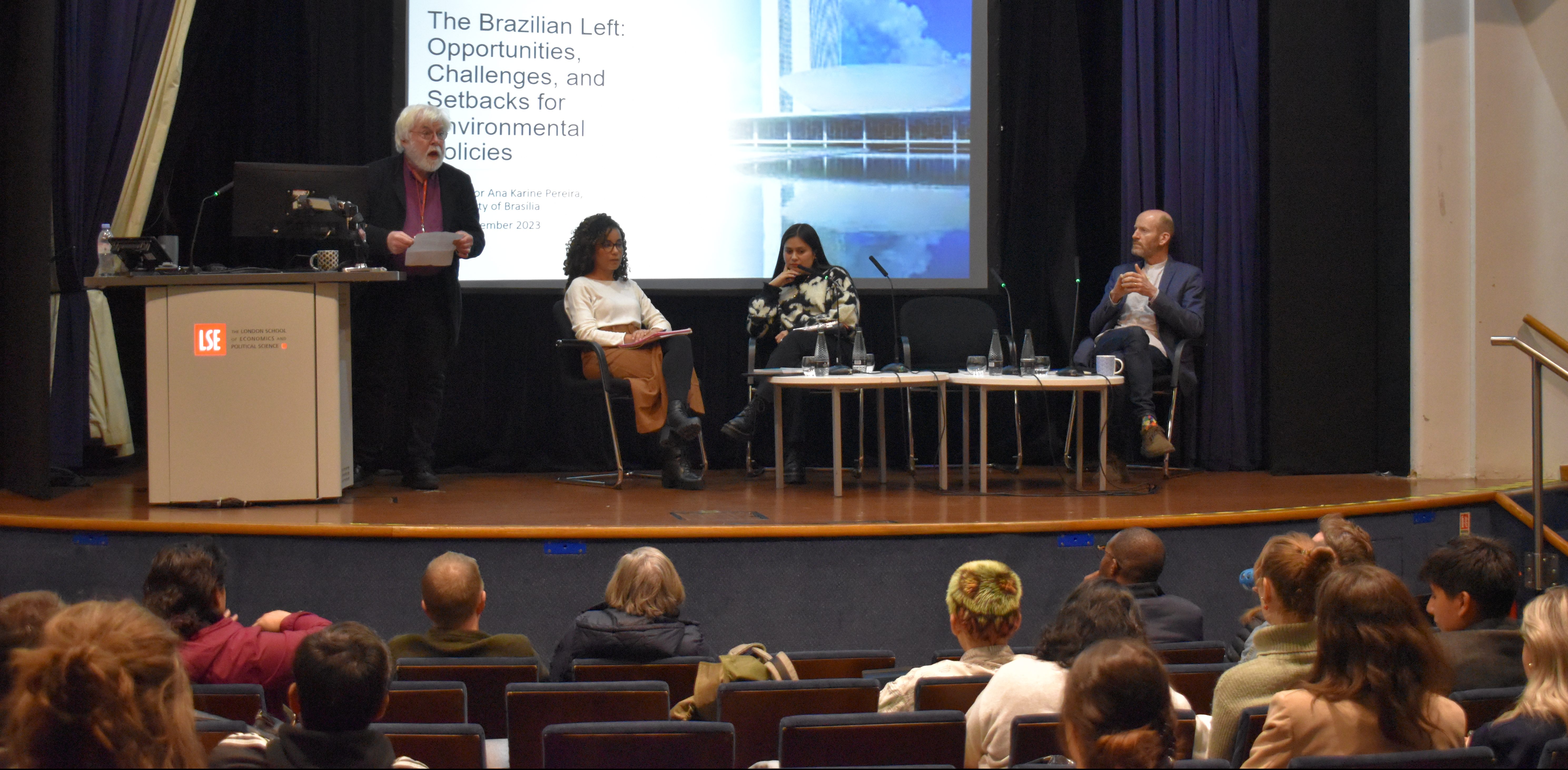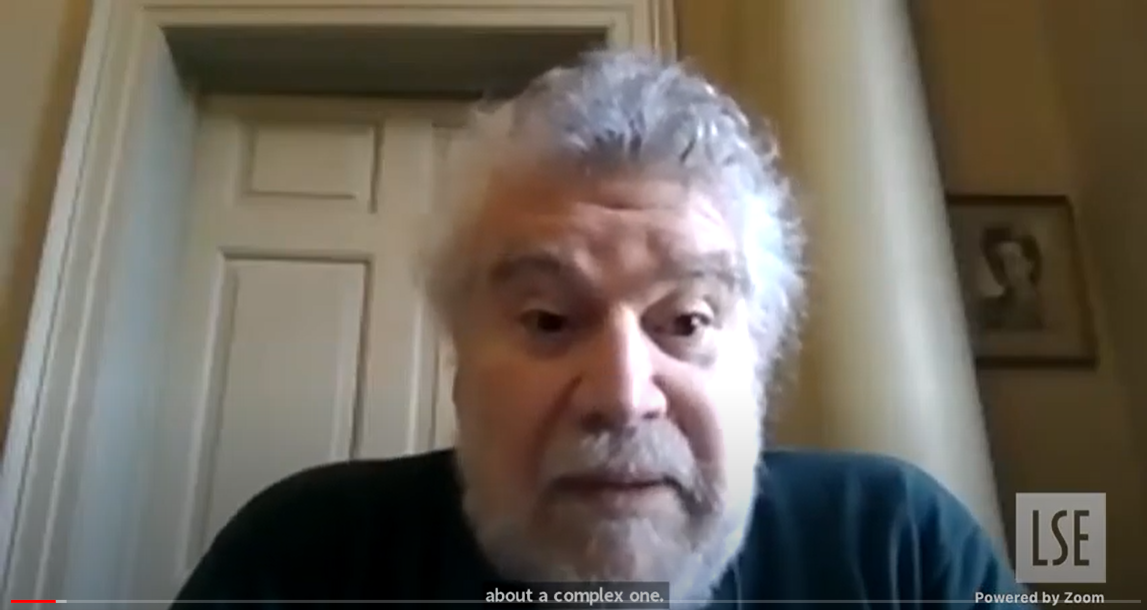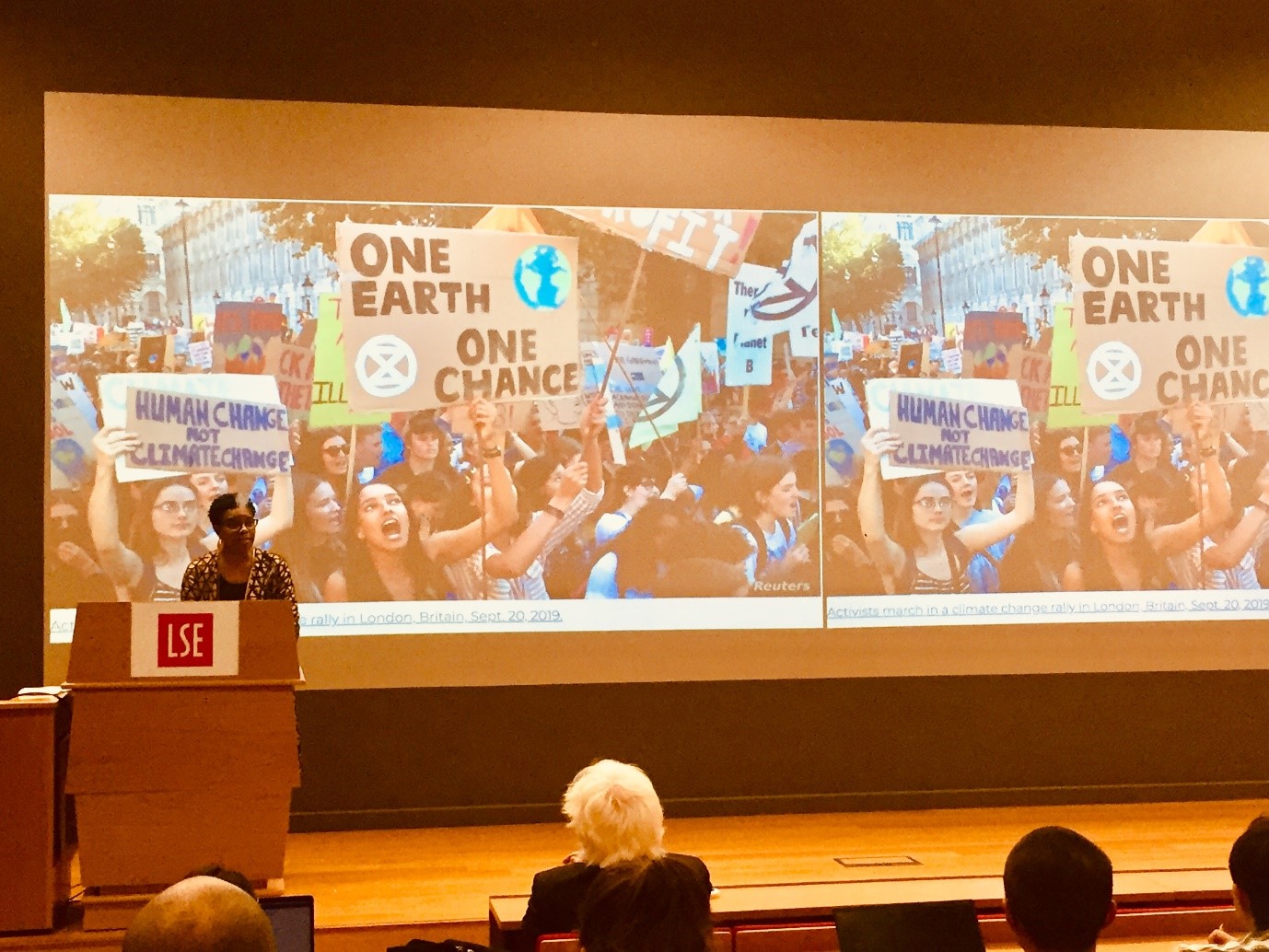MSc Environment and Development student, Katie Bernhard, reflects on a lecture by Dr. Lorenzo Cotula, principal researcher in law and sustainable development at the International Institute for Environment and Development (IIED), about legal avenues to rectify harms caused by land grabs, and can also empower poor and vulnerable smallholders.
Rarely does the logic that gave rise to a problem also offer solutions to fix it. Equally rare are solutions that provide access to justice and empowerment for economically, environmentally, and socially vulnerable people. However, in his talk at LSE on November 24, Dr. Lorenzo Cotula presented legal avenues to rectify harms caused by land grabs, thus presenting solutions to largely legal problems— avenues that can also empower poor and vulnerable smallholders. An expert in law and development focusing on international investment law, human rights, and land rights, Dr. Cotula walked the audience through the legal context and recent rise of land grabs and associated trade deals before then outlining the work being done to find solutions.

Land provides fundamental livelihoods for subsistence farmers and smallholders in low- and middle-income countries. Recent years have seen a rise in land grabs for agribusiness and infrastructure, ranging in scale from state-orchestrated deals to international investors and multinational corporations pressuring states’ shaky land tenure and property rights systems to further their own agendas. It is often local smallholders—whose land rights might not be formally registered and secure—who ultimately lose from these deals. Smallholders and communities are not always consulted in advance, and these land acquisition deals can leave them displaced, with neither livelihoods nor proper compensation.
Market forces, particularly commodity price fluctuations, combined with states scrambling to attract foreign investment in development infrastructure and agribusiness, explain this recent rise in land acquisitions and reallocations of land away from smallholders. The period from 2007-2011 saw a particularly rapid rise in these deals. According to Cotula, international trade law and treaties have enabled and exacerbated these land grabs and protected those seeking to acquire land. Furthermore, property rights regimes and titling systems often prioritize the most “productive” uses of land, thereby disadvantaging low-yield subsistence farmers and communities using customary and collective land tenure systems. Smallholders have thus lost land from Africa to Latin America to Central and Southeast Asia.
Among the most profound points emphasized by Cotula was that of the colonial legacy and neocolonial implications of land acquisitions. Underlying any conversation about land rights, titling, and acquisitions are bigger questions about power relationships, structural and social inequality, colonization, and hegemony: Who really benefits from land ownership and deals? Who really benefits from law? And, if we perhaps don’t like the answers to these questions, Cotula suggests ways to use law to shift power in the direction of smallholders, through legal empowerment, litigation, and accountability. IIED and similar organizations are helping to inform communities about their rights by increasing awareness and access to legal information, and by working with legal empowerment practitioners. This enables community and individual involvement in decision-making around the land deals that ultimately impact them the most.
In my work and studies in environment, development, and human rights, I sometimes feel defeated in the face of enormously unequal power dynamics between agribusiness and smallholders, states and individuals, and the layers of “coloniality” embedded in economic and political systems worldwide. But I draw inspiration from Dr. Cotula’s work at the International Institute for Environment and Development which, alongside grassroots and national organizations, offers solutions by providing people with legal alternatives and access to justice.
This is the second in a series of articles from International Development students for the Cutting Edge in Development Thinking and Practice lectures. The lecture series is open to all postgraduate students at LSE, and introduces them to pressing issues in the field of International Development.
Katie Bernhard (@katiepbernhard) is an MSc Environment and Development candidate at the LSE. A Dartmouth College alumna and former Princeton in Africa Fellow in Rwanda, Katie’s work centers on the nexus of environment, human rights, and peacebuilding. She most recently worked with the Coalition for Human Rights in Development on environmental and human rights advocacy in development finance, primarily in issues surrounding land acquisitions for financed infrastructure projects.
The views expressed in this post are those of the author and in no way reflect those of the International Development LSE blog or the London School of Economics and Political Science.





